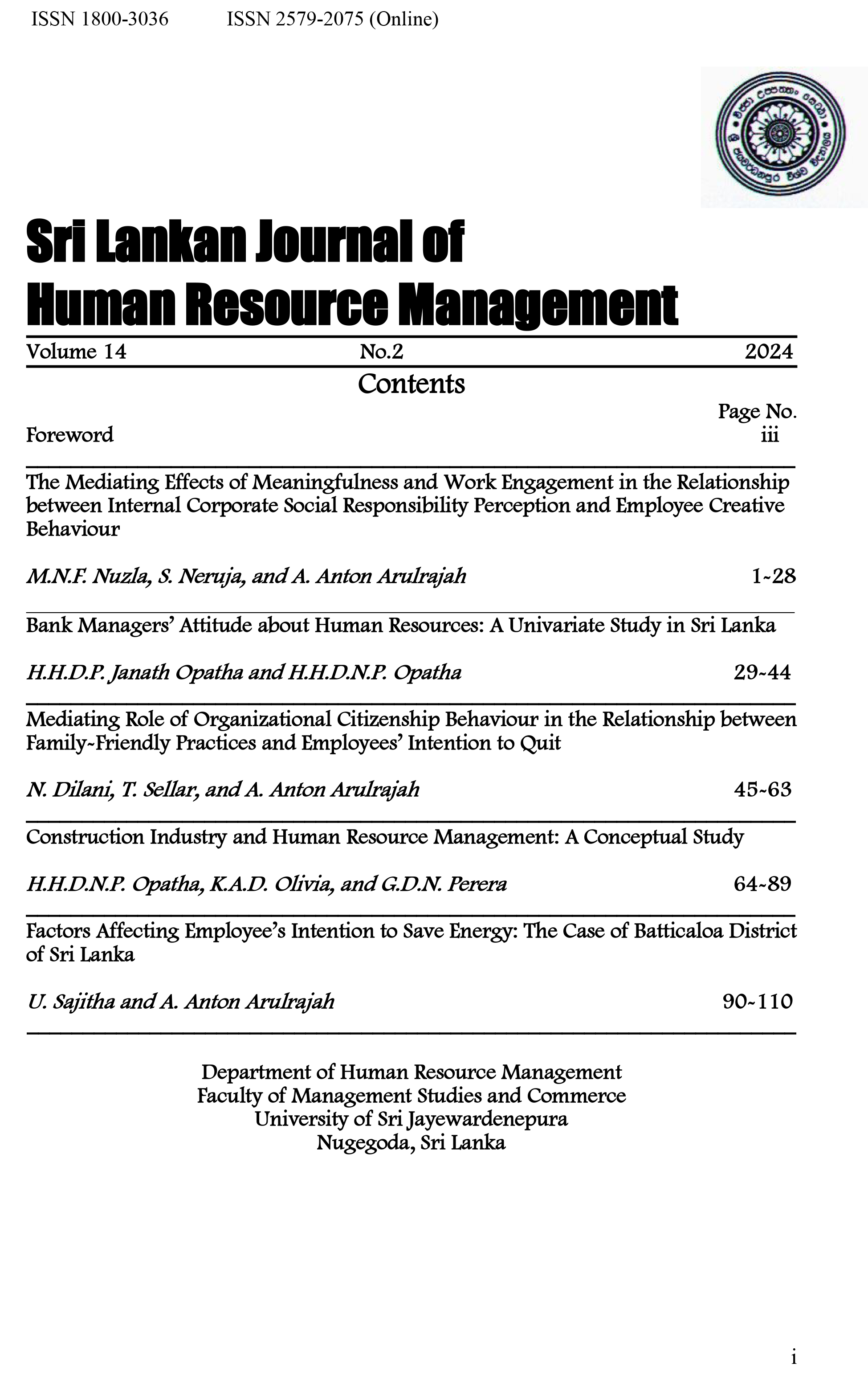Factors Affecting Employee’s Intention to Save Energy: The Case of Batticaloa District of Sri Lanka
DOI:
https://doi.org/10.31357/sljhrm.v14.7523Abstract
The main secondary energy source in Sri Lanka is electricity. For electricity production, Sri Lanka mostly uses fossil fuels. Energy import expenditure is one of the major burdens for Sri Lanka and fossil fuels release stored carbon and greenhouse gases into the environment. At workplace, employee (individual) level energy saving is one of the main contributors to the overall energy saving efforts of the organizations. This study aims to understand the factors affecting employee’s intention to save energy at workplaces. The theory of planned behavior was used for this study. The questionnaire survey was used to collect data. Data were collected from 205 employees of the financial institutions in Batticaloa district. Findings of the study revealed that attitude, subjective norm, perceived behavioral control, personal moral norm, habit, positive anticipated emotion, and price are positively related to employee’s intention to save energy, and intention to save energy is positively related with energy saving behavior of employees. At the same time, these predicting variables have a positive impact on intention to save energy, and intention to save energy has a positive impact on energy saving behavior of the employees. Price/cost of energy is the best predictor of the intention to save energy of employees. According to the results, implications for improving individual employees’ intention to save energy at the workplace have also been discussed.
Key Words: Energy, Intention to Save Energy, Price, Workplace, Energy Saving Behavior

